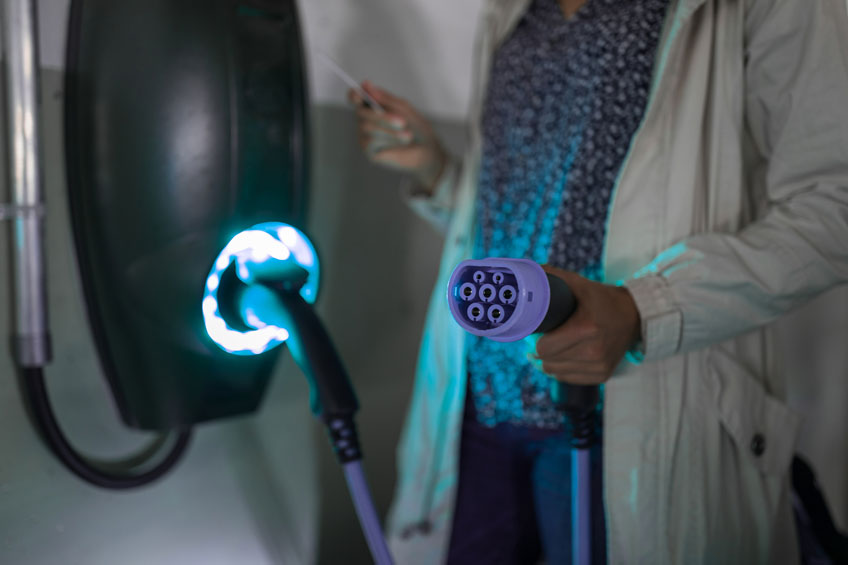As gasoline prices go up and electric vehicle (EV) prices come down (a little), more people are looking to add an EV to their personal transportation. But before you take the plunge, there are some things you need to know.
First, There’s the Economics
Electric vehicles aren’t cheap. As more models come into the market, prices are beginning to come down, but they’re still comparable to a fully-loaded gas SUV. Various incentives and tax breaks can lower the costs somewhat, making the purchase a little less painful, but don’t be surprised by $40-60 thousand sicker prices on even basic models.
But properly managing an EV can cut operating costs, often below those of operating a gas-powered vehicle. The most important consideration is how you charge your EV. Commercial “filling stations” can be painfully slow and quite expensive. For more information on operating your EV economically, see our article, Electric Vehicle Home Chargers Save Big Bucks.
Nest, Choosing a Home EV Charger
There’s no question that a home EV charging station is the way to go, but that means more decisions, choices that can have a big impact on convenience and safety when it comes to charging your EV.
Some EV chargers work on simple household current. They’re inexpensive but the upfront savings comes with tradeoffs. A 120-volt charger is like using a trickle charger on a standard car battery and can be very slow. An overnight charge may not get your batteries charged up enough for more than short trips.
A far better choice is a Level 2 240-volt charger. They run on a dedicated 240-volt AC circuit of 40 amps or more. They’re found both in home chargers and commercial charging stations. They can fully charge a typical EV in 5-12 hours making them perfect for home use overnight.
Stage 3 chargers are high-voltage, heavy-duty chargers designed for commercial and business use only and are not appropriate for home use.
If you’re lucky, your home may already be designed for a Stage 2 EV charger—it’s been required in all new construction in many cities (including most in the Denver area) for several years. But the code only requires conduit, an outlet box, and power at the panel. Running 240-volt wiring and installing a charger is up to the homeowner. So unless the contractor or a previous homeowner has done it, it’ll be up to you, and it’s a job that should only be done by a licensed professional electrician since working with 24o-volt circuits can be deadly if done improperly.
To DIY or Not to DIY
120-volt Level 1 chargers can be plugged into a standard wall outlet, but they must be on a GFCI-protected circuit capable of carrying the load, preferably a dedicated one to avoid annoying breaker trips from overloads. Adding a GFCI breaker isn’t rocket science, but it must be wired properly or the protection is lost. Or worse. Unless you’re familiar with electrical wiring, it’s a job best left to a pro, especially if a new circuit is being run.
As mentioned above, running a 240-volt, 40-plus amp circuit is not for DIYers. Aside from the dangers of working with that much current, installation of the outlet and breakers must be done to manufacturer’s specifications, including the proper amount of torque on connectors to prevent dangerous arcing that can lead to disastrous consequences.
Be Safe. Call a Pro
Adding a home EV charging station makes sense for many homeowners. It lets them charge their vehicle(s) conveniently at home, letting them use their time better and avoid the hassle and expense of using commercial charging stations. Plus, since they’ll probably be charging overnight, they’ll be buying electricity at off-peak rates instead of higher daytime prices (and without retail markups for overhead and profits).
Plus, it adds value to a home when it comes time to sell.
Allstar Electrical Services has installed dozens of EV charging stations in homes, parking garages, and at businesses with multiple EV fleets. We’ve helped Coloradans increase efficiency while adding comfort and convenience to their homes and businesses for over 20 years.
For an estimate on installing a home EV charger or to learn more about the many ways upgraded electric services and emerging technologies can improve your home or business, schedule an appointment our website or give us a call at 303.399.7420.


